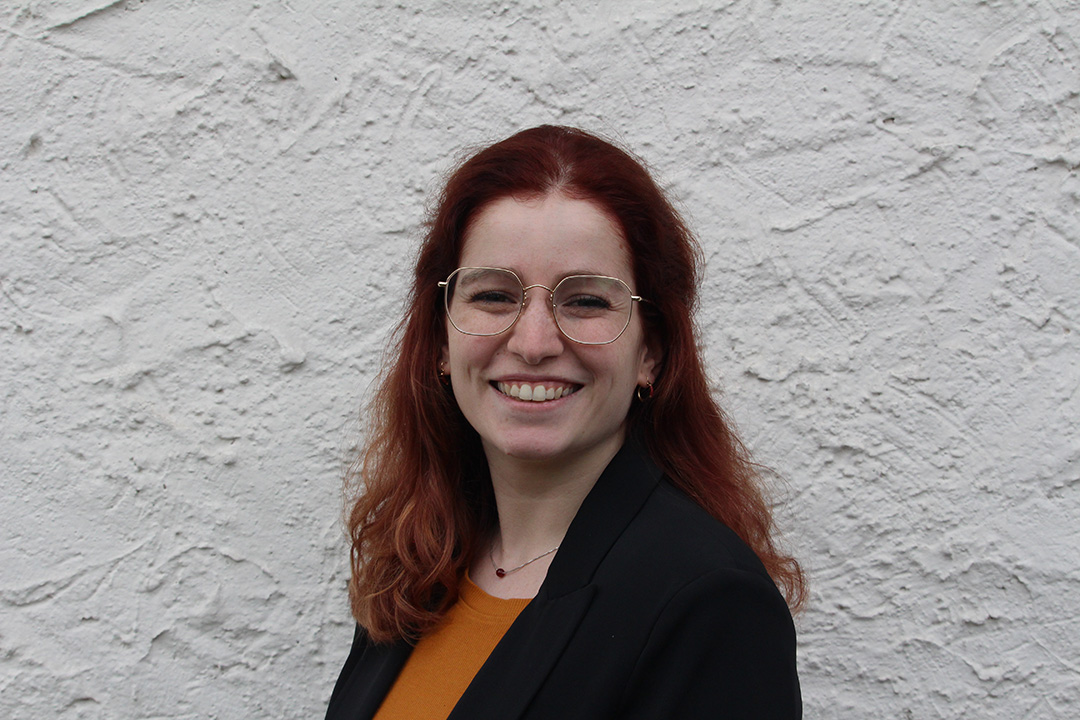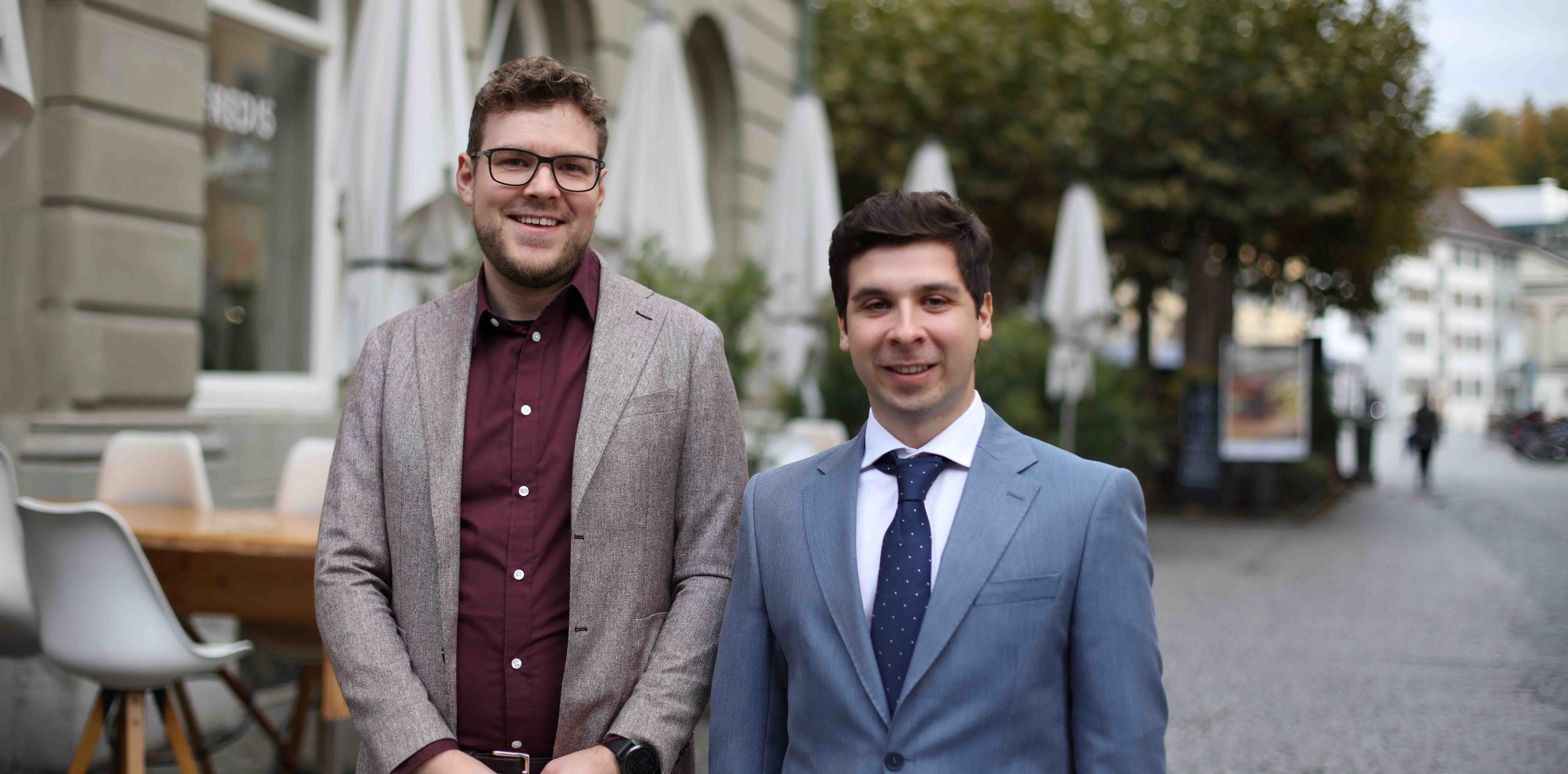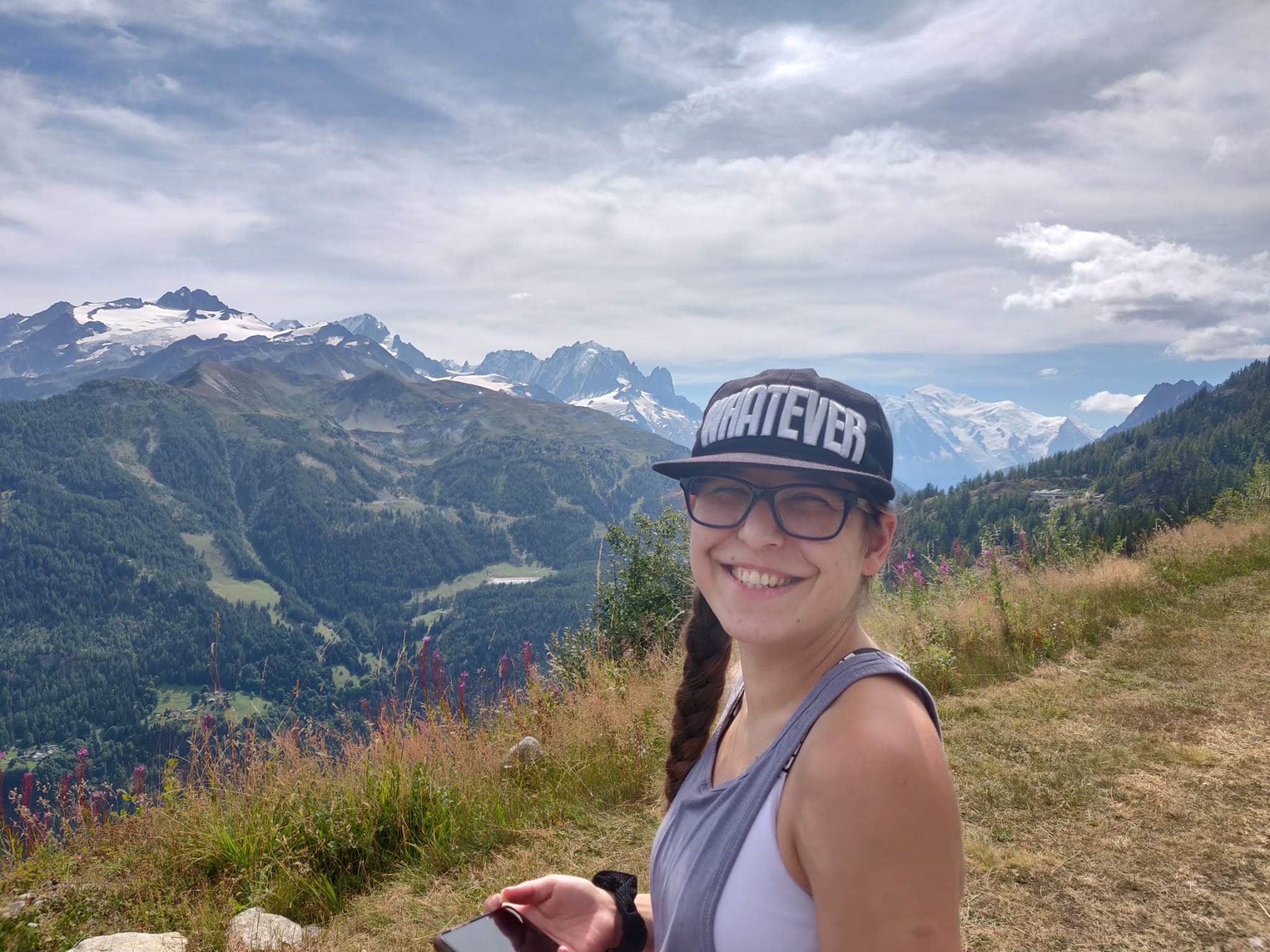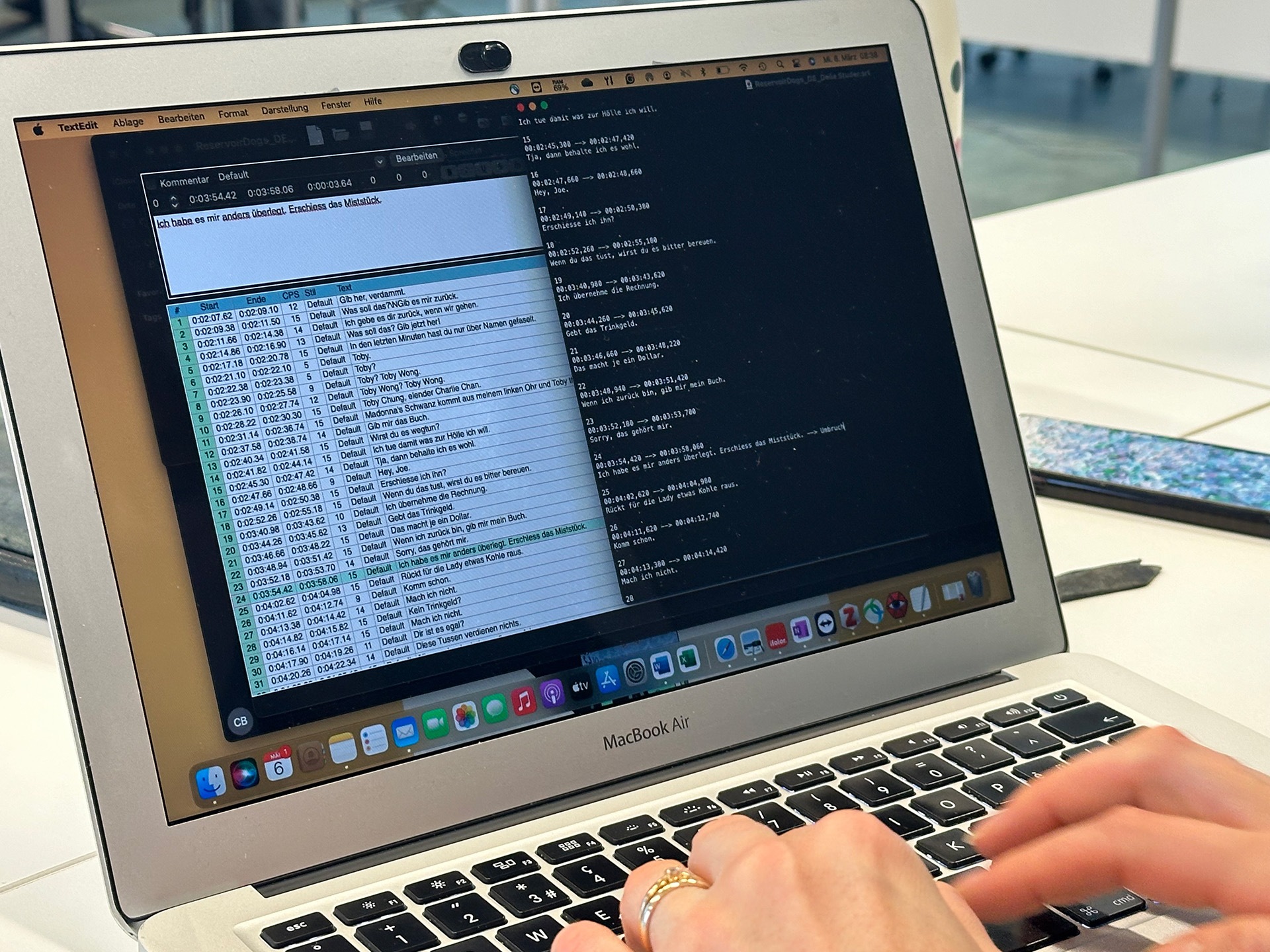BA in Multilingual Communication
In our digital and globalised world, communication between cultures and languages as well as people and technology is more important than ever. This degree programme lays the foundations for a multilingual career in which you can shape communication in a creative fashion, understand and co-develop language technologies and put them to professional use.
Those who can mediate between people, cultures and languages have a great advantage. As a multilingual communication and language expert, you use creative solutions, in-depth technological expertise and innovative language technologies to break down boundaries in national and international contexts.
In the BA in Multilingual Communication, you acquire excellent language skills in at least three languages. At the same time, you gain future-oriented skills that allow you to understand, advance and efficiently apply (AI-based) language technologies in an efficient manner. You learn not only how to prepare specialised content for specific target groups and across different media, but also how to work with language data and shape translation processes using technological innovations. Become part of the dynamic, digitalised language industry and help shape the multilingual communication of tomorrow with professionalism, creativity and technological expertise – whether spoken, written, online or offline.
Your Future Career
Whether translating and subtitling films and series, designing user-friendly technical documentation or optimising computer-assisted language processing: the BA in Multilingual Communication opens the door to a wide range of career paths, including the development of future-oriented language technologies, the design of multimodal language applications and the professionalisation of multilingual communication.
You combine human creativity with technical expertise and facilitate competent multilingualism wherever communication takes places across language, cultural and specialist frontiers. With this profile, countless opportunities await you that will require not just your linguistic skills, but also your technological expertise.
What our graduates say
-

Vom Studium in die Barrierefreie Kommunikation: Ein Alumniporträt
Sara Anzevino hat Mehrsprachige Kommunikation studiert. Mittlerweile ist sie als Fachspezialistin für Barrierefreie Kommunikation tätig und absolviert den Master Angewandte Linguistik. Im folgenden ...
-

Interaktives Post-Editing unterstützt Kreativitätsgefühl beim Übersetzen
Michael Wetzel und Gabriele Gelormino haben in ihrer Masterarbeit untersucht, welchen Einfluss die Art des Post-Editings auf die Kreativität von Fachübersetzer:innen hat – mit spannenden Ergebnissen ...
-

Von der technischen Redakteurin zur Informationsarchitektin
Céline Simmen schloss 2021 den Bachelor Mehrsprachige Kommunikation mit der Vertiefung Fachkommunikation & Informationsdesign (damals Technische Kommunikation) erfolgreich ab. Nach ersten Erfahrungen ...
What you will study
In the BA in Multilingual Communication, you learn to use language in a precise, creative and professional manner. You acquire outstanding proficiency in at least three languages of study and develop the ability to mediate between languages, cultures and contexts. At the same time, you gain a broad range of forward-looking skills, enabling you to design communication that is not only multilingual, but also technically sound, efficient and tailored to specific audiences.
The degree programme contents include:
/ Usability and UX
/ Technical documentation
/ Machine learning with language data
/ Python programming
/ Formulating texts in your languages of study
/ Knowledge of the cultural areas of your languages of study
/ Subtitling
/ Translation and language technologies
/ Accessible communication
/ Public service and court interpreting
/ Social media communication
Further information about the degree programme can be found on our German-language webpages:
About the BA in Multilingual Communication
Languages of study
Programme structure
Admission requirements
Costs
Registration for our information event
How to apply
Graduation ceremonies
Choose a specialisation
Multimodal Communication
You deepen your skills in oral and written translation and familiarise yourself with various modalities, including subtitling and interpreting. You use AI-based language technologies systematically, allowing you to optimise translation processes in various fields of application.
Information Design
You specialise in preparing subject-specific information for different target groups in multiple languages. Focus is placed on usability, visual communication, user experience and testing and optimising software and apps.
Language Engineering
You gain a deep understanding of computer-assisted language processing and the development of language technologies. You learn to create information systems, work with language data and statistics and program tools to make translation processes more efficient – skills that are increasingly crucial for technical roles within the language industry.
Language and technology in the language industry
Language technologies have revolutionised the way in which we communicate and work. Systems for automated translation, text generation and the processing of large language datasets are shaping today’s language industry and opening up new career opportunities. However, these advancements not only require the ability to apply such technologies, but also a deep understanding of how they work.
In the BA in Multilingual Communication, you therefore learn to put AI-based systems to professional and efficient use and to advise companies on implementing and optimising language technologies. With a unique profile that combines language expertise with technical know-how in language engineering, you will be optimally prepared to meet the challenges of digital, multilingual communication.
Insights into our degree programme
-

Wenn Untertitel den Ton angeben
Sie sind kaum mehr wegzudenken und man findet sie in Social-Media-Videos, der Lieblingsserie auf Netflix oder bei Filmen im Kino: die Untertitel. Sind sie gut, nehmen wir sie kaum wahr – schlechte ...
-

Bin ich zu alt zum Studieren?!
Ich war 38 Jahre alt und mein Leben war nicht so verlaufen, wie ich es ursprünglich geplant hatte. Ich war kurz vor der berüchtigten Midlife-Crisis und fragte mich, was ich denn mit dem Rest meines ...
-

Von der technischen Redakteurin zur Informationsarchitektin
Céline Simmen schloss 2021 den Bachelor Mehrsprachige Kommunikation mit der Vertiefung Fachkommunikation & Informationsdesign (damals Technische Kommunikation) erfolgreich ab. Nach ersten Erfahrungen ...
At a glance
Before the study
- Downloads: brochure(PDF 1,8 MB)
- Admission requirements: Either a Swiss higher secondary education certificate (Matura) – which may be either a Swiss general baccalaureate (in German, “gymnasiale Maturität”), a Swiss specialist baccalaureate (in German, “Fachmaturität”) or a Swiss vocational baccalaureate (in German, “Berufsmaturität”) – or an equivalent qualification from another country. Successful completion of theaptitude test is also required. Further info on admission requirements
- Admissions procedure: information on the aptitude test(PDF 117,4 KB)
- Application deadline: 30 April
- Tuition fees: CHF 720.- per semester + additional course-related expenses
During the study
- Programme start: Autumn
- Location: Winterthur, with the option to complete the fifth semester as a semester abroad or internship semester
- Format: full-time, part-time study is possible
- Number of credits: 180 ECTS credits
- Duration: 6 semesters (full-time), approx. 10 semesters (part-time, depending on the student’s individual profile)
- Teaching language: German and your chosen languages of study
- Legal basis: academic regulations and annex
After the study
- Title: Bachelor of Arts ZHAW in Multilingual Communication
- Graduate programmes: Master of Arts in Language and Communication and others
Admission requirements
Admission requirements
To be admitted to the programme, you will need to meet the following requirements:
- You will need to be in possession of either a Swiss higher secondary education certificate (Matura) – which may be either a Swiss general baccalaureate (in German, “gymnasiale Maturität”), a Swiss specialist baccalaureate (in German, “Fachmaturität”) or a Swiss vocational baccalaureate (in German, “Berufsmaturität”) – or an equivalent qualification from another country.
- You will need to successfully complete our aptitude test.
You are not required to demonstrate practical professional experience (e.g. a year of work experience) in order to be admitted to the BA in Multilingual Communication.
Aptitude test
The aptitude test consists of several language tests.
You will be tested in the languages you intend to study, i.e. your language (mother tongue) and at least two foreign languages. You may take tests in a greater number of languages than can be studied in the foundation course. The level of proficiency required for admission is equivalent to an above-average baccalaureate grade in your main language and approximately C1 under the Common European Reference Framework in your foreign languages.
Passing grades and language combinations
To pass the aptitude test, you must pass each unit (approx. 60% pass mark). If you pass the aptitude test, you are entitled to enrol in the degree programme in the year you take the test or in either of the two years thereafter. If you do not pass the aptitude test at the first sitting, you may resit the test one more time, the resit being no earlier than one year after the first attempt. You must only resit those units of the test which were failed.
As a rule, you study the combination of languages you entered on your application form. When the grade achieved in a language test is only just sufficient, we reserve the right to determine the language combination on the basis of the admissions assessment results (with the stronger foreign language being the first foreign language and the weaker foreign language the second one).
Exemptions
You must sit a language test in your main language. No exemption from this requirement can be granted for any candidate.
If you have a recognised language certificate at level C2 in a foreign language, you can be granted a exemption from the test in that language provided the certificate was awarded no more than two years before the date of your application.
German as a foreign language
Goethe-Zertifikat C2: Grosses Deutsches Sprachdiplom
English as a foreign language
Certificate of Advanced English, Grade A
Certificate of Proficiency in English
TOEFL (Internet-based), score: 115
IELTS, Band 8.0
French as a foreign language
Diplôme Approfondi de Langue Française DALF C2
Italian as a foreign language
CELI 5 Certificato di conoscenza della Lingua Italiana
PLIDA C2
Spanish as a foreign language
Diploma Superior de Español DELE C2
How to prepare for the aptitude test
Depending on your language level and the type of learner tha you are, you can prepare in different ways for the language tests. We recommend that you spend time in the countries where the relevant languages are spoken, either taking a language courses, doing an internship and/or working. We also recommend that you consciously and actively use the language in the run-up to the language tests and consume content in your chosen languages via television, newspapers and podcasts.
The following demo versions of the language tests give an idea of the level required:
Dates and deadlines
The deadline for applications is 30 April. The aptitude tests take place in May during calendar week 21 (overview of dates and deadlines). The exact dates will be communicated to you in person once your application has been received. All language tests are usually completed on a single day. If you take tests in more than one main language or more than two foreign languages, you may be asked to attend on a second day.
For prospective students based outside Switzerland
Enrolling on a regular degree programme at the ZHAW with a foreign university entrance qualification
If you are in possession of a foreign qualification (e.g. Abitur or International Baccalaureate), obtained either in Switzerland or abroad that allows you access to higher education, please submit the documents requested by the academic office responsible for the degree programme you have chosen so that your qualification can be checked for equivalency. This equivalency recognition process follows the Guidelines on Equivalency Recognition for Bachelors Degree Programmes and takes place after your application has been submitted. If you have any questions, please contact the academic office. There are no quotas on international students.